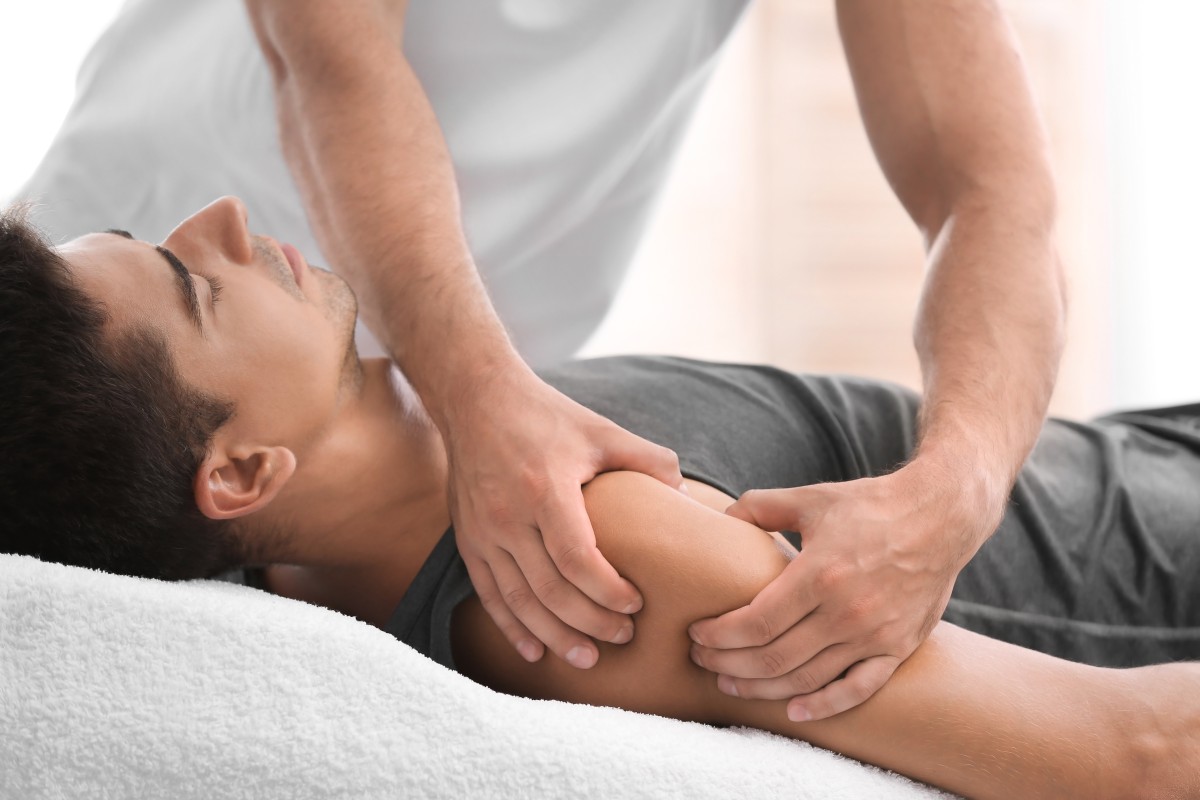Hello there! We are delighted to have you here on our blog, where massage therapists and enthusiasts come together to share insights and help others who are also fans of giving and receiving massages. Today, we want to talk about a topic that may interest you: which condition will benefit most from massage?
Curious to learn more? Well, you’ve come to the right place! In our upcoming article, we will dive deep into the world of massage and explore the various conditions that can benefit greatly from this therapeutic practice. Whether you suffer from chronic pain, stress, or even insomnia, we’ll discuss how massage can potentially alleviate symptoms and promote overall well-being. So, stay tuned and get ready to discover how massage can bring relief to those in need. Massage therapy has long been recognized for its numerous benefits to the body and mind. Whether you’re an athlete looking to recover from a sports injury or someone seeking relief from chronic pain or stress, massage can be a valuable tool in promoting overall wellness. In this article, we will explore the general benefits of massage and highlight specific conditions that can benefit greatly from this therapeutic practice.
General benefits of massage
Reduction of muscle tension and pain
One of the key benefits of massage is its ability to alleviate muscle tension and pain. The skilled hands of a massage therapist can target specific areas of tension, helping to release knots and tightness in the muscles. This can provide immediate relief and improve overall flexibility and range of motion.
Increased relaxation and stress relief
Massage is well-known for its ability to induce relaxation and reduce stress. The rhythmic movements and soothing touch of a massage therapist can calm the nervous system and promote a sense of deep relaxation. This can be particularly beneficial for individuals who struggle with chronic stress or anxiety.
Improved blood circulation and lymphatic flow
Massage techniques such as kneading and stroking can promote improved blood circulation and lymphatic flow. This increased circulation helps to flush toxins from the body, enhance nutrient delivery to muscles and tissues, and support overall immune function. Consequently, massage can aid in the healing process and promote general wellness.
Specific conditions that can benefit from massage
Musculoskeletal conditions
Massage therapy can provide relief for various musculoskeletal conditions such as arthritis, back pain, neck pain, shoulder pain, and sciatica. By targeting these specific areas of discomfort, massage can help reduce inflammation, improve joint mobility, and alleviate pain.
Chronic pain conditions
Individuals suffering from chronic pain conditions like fibromyalgia, osteoarthritis, rheumatoid arthritis, and temporomandibular joint disorder (TMJ) can benefit greatly from regular massage sessions. Massage can help relax muscles, increase circulation, and release endorphins, which are natural pain-relieving hormones.
Sports injuries
Athletes who have experienced sports injuries, such as sprains and strains, muscle tears, and tendonitis, can find relief through massage therapy. The therapeutic techniques used in massage can help reduce inflammation, promote healing, and increase flexibility, allowing athletes to recover quicker and prevent future injuries.
Post-surgery rehabilitation
For individuals in post-surgery rehabilitation, massage therapy can play a crucial role in the recovery process. Massage can help speed up healing by increasing blood flow to the affected area, reducing swelling and inflammation, and improving range of motion. It can also help alleviate post-operative pain and promote relaxation.
Stress and anxiety
Massage is a powerful tool for managing stress and anxiety. By promoting relaxation and releasing endorphins, massage therapy can significantly reduce stress levels and improve overall well-being. Regular massage sessions can help individuals cope with the daily pressures of life and restore balance to the mind and body.
Depression
Massage therapy can also be beneficial for individuals dealing with depression. The gentle touch and nurturing environment provided during a massage session can boost mood, increase feelings of well-being, and stimulate the release of neurotransmitters that promote happiness and relaxation.
Headaches and migraines
Many individuals suffer from frequent headaches and migraines, which can be debilitating and impact daily life. Massage therapy can help relieve headache and migraine symptoms by targeting specific trigger points, reducing muscle tension, and improving blood flow to the head and neck.
Fibromyalgia
Fibromyalgia is a chronic condition characterized by widespread pain and fatigue. Massage therapy can be an effective complementary treatment for individuals with fibromyalgia. It can help decrease muscle pain and stiffness, improve sleep patterns, and promote relaxation.
Insomnia
Insomnia, the inability to fall asleep or stay asleep, can significantly impact a person’s quality of life. Massage therapy can help induce relaxation, reduce anxiety, and improve sleep patterns. The soothing touch and tranquil environment of a massage session can provide a much-needed respite for those struggling with insomnia.
In conclusion, massage therapy offers numerous benefits for both the body and mind. From reducing muscle tension and pain to promoting relaxation and stress relief, massage can be a valuable tool in improving overall well-being. Whether you’re dealing with a specific condition such as arthritis or fibromyalgia, recovering from a sports injury, or simply seeking a way to relax and recharge, massage therapy can be a beneficial addition to your wellness routine. Consult with a licensed massage therapist to determine the best massage techniques and frequency for your specific needs. Start incorporating massage into your self-care regimen and experience the transformative effects it can have on your health and happiness.
